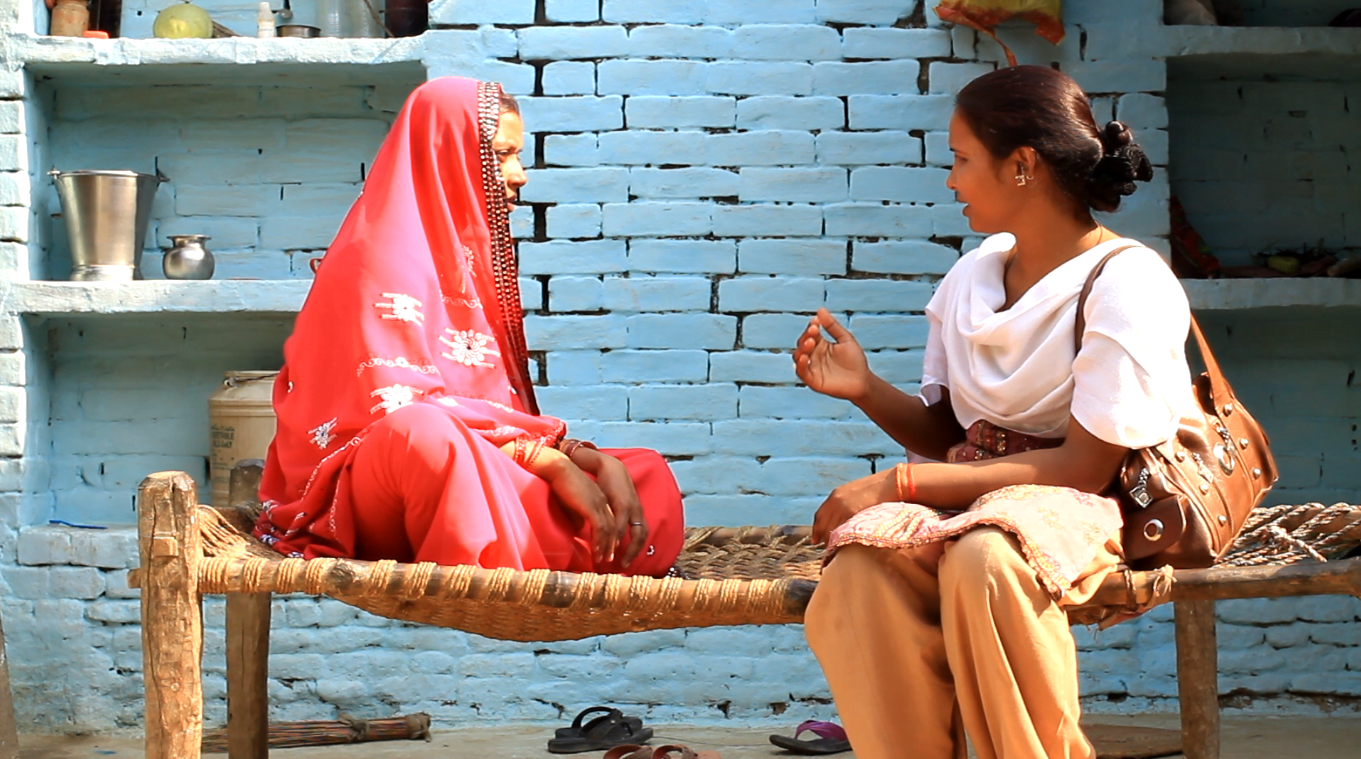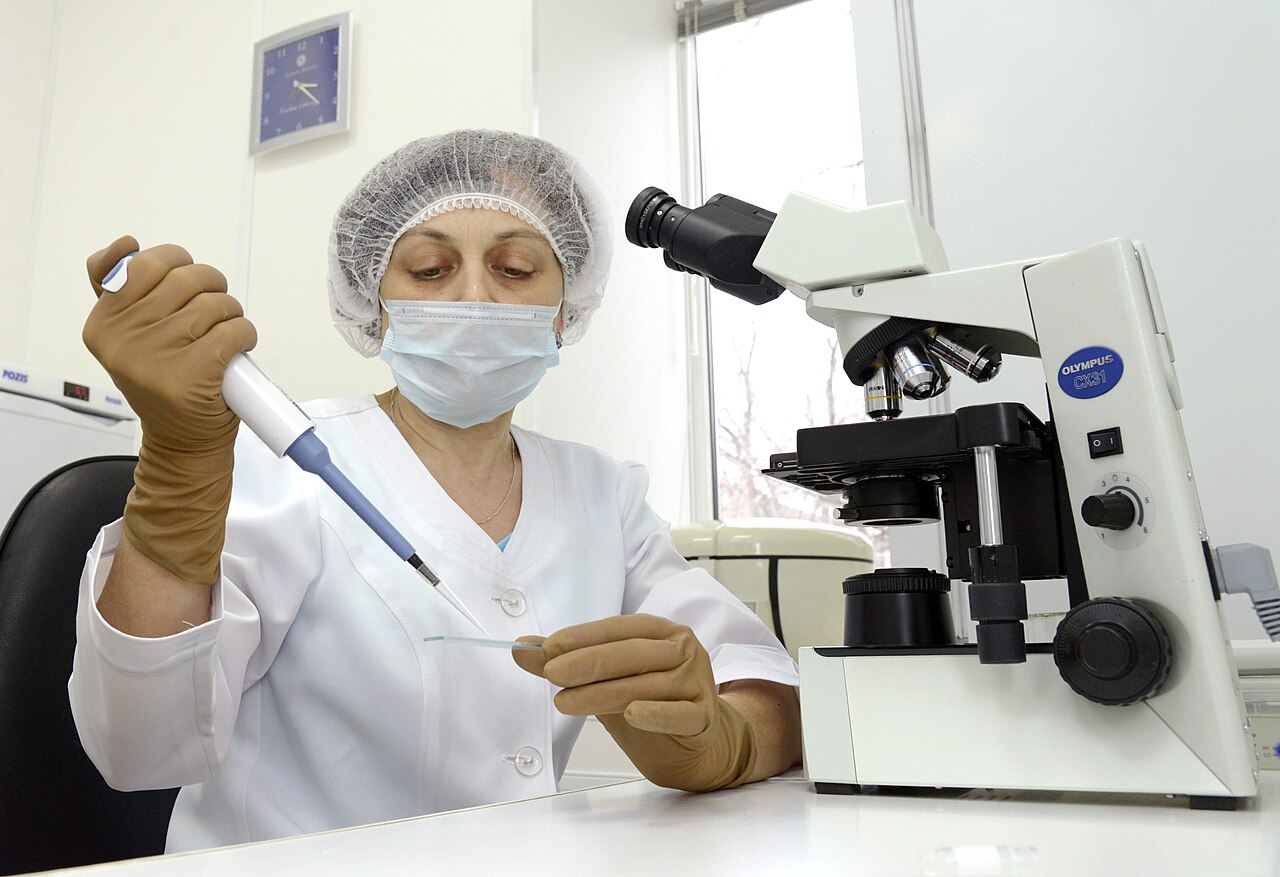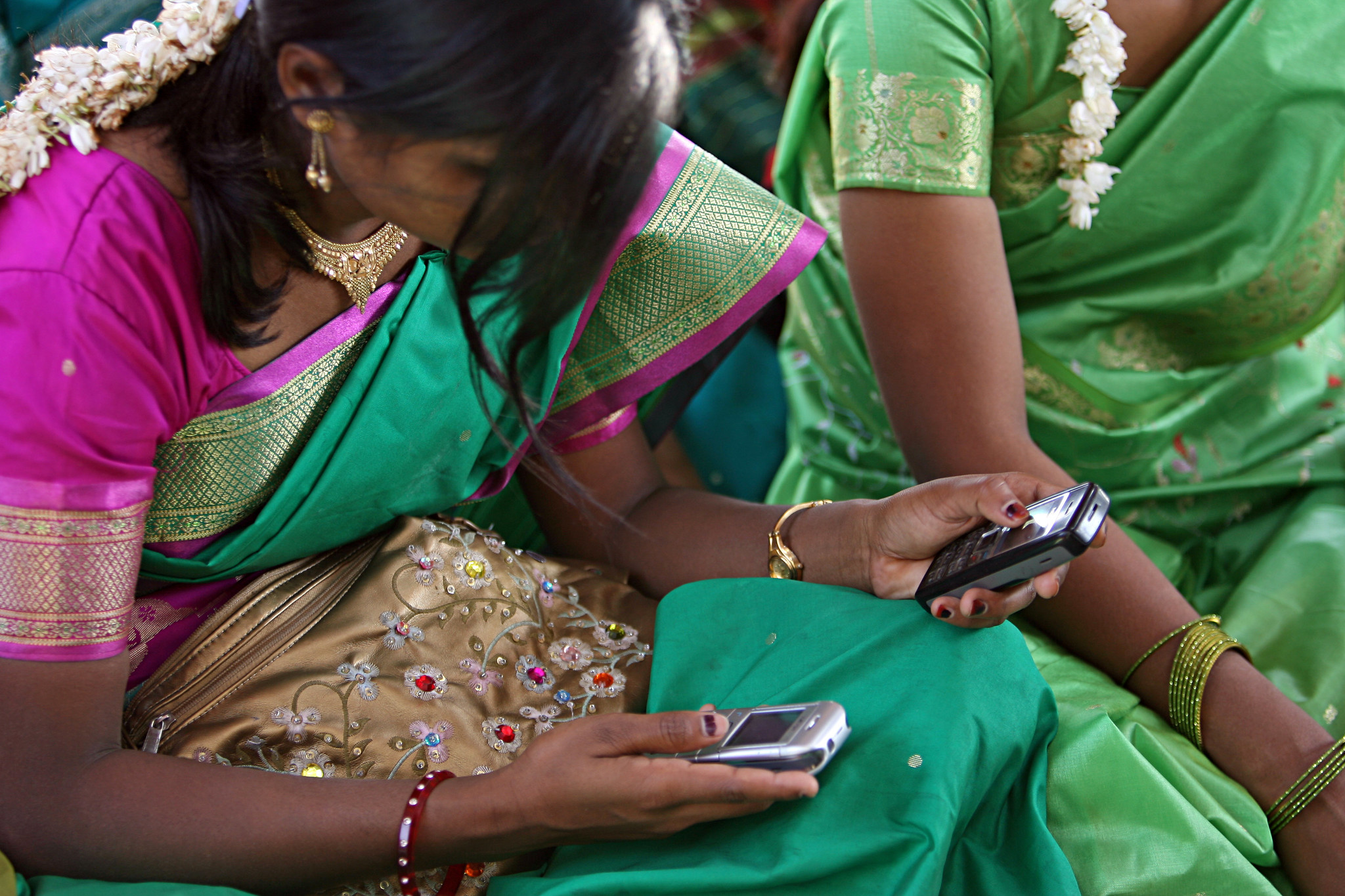The digital revolution in India has enormous potential to improve women’s social and economic results. It is true to say that access to knowledge is a powerful instrument for empowerment, particularly for women. Digital technology, particularly mobile phones, has increased women’s access to information, allowing them to become more self-sufficient.
To create more financial awareness, DigiPrayas sought to raise digital financial literacy in the country’s rural communities. It assisted communities in their search for modern forms of banking via the digital medium by first familiarizing them with the digital interface and then assisting them in accessing digital banking services. The programme was running in 12 panchayats across five states in India. The campaign included many levels of participation, ranging from community awareness activities to individual training.
Especially during Covid-19, the transition of many small and large enterprises from a physical office to an online platform opened the door to employment for many women in small towns and cities; thus, digitalisation presented an opportunity for misfortune.
Digital empowerment and women
While there is no magic fix for attaining gender balance, digital technology can help to close gender disparities by improving access to social services, identification (ID), financial services, and information.
The digitalisation helps rural women, where they can be better educated about all aspects of their lives if technology is made more accessible and understandable to them. There are several reports and articles about how it can provide know-how and assistance to ordinary women in order for them to use their abilities in any craft which can lead to operating successful businesses.
It can also improve small-scale enterprises by providing simple access to resources, directing expertise and information, and reducing the need for intermediaries and a physical market. Women who have been forced to leave their jobs due to motherhood or other personal circumstances that limit their mobility can continue working from home via the internet. The online market has made it easier for women to obtain raw materials and clients for finished products/services, making it easier for them to do business.
Also read: Navigating Parenthood In A Rapidly Changing, Digital World
Despite some notable measures, a large digital gender gap persists, impeding the fair implementation of digital transformation advantages across high-, low-, and middle-income nations. But access to digitally transmitted resources enhances privacy and security. Switching to digitally distributed grants or loans might help women overcome current social conventions, such as other members of families claiming responsibility for women’s income and savings, giving them greater financial autonomy and empowering them to challenge restrictive gender norms.
Digital Empowerment Programmes for the Betterment of Women and Children
Imparting digital literacy and information along with media literacy to all first-generation users has been Digital Empowerment Foundation (DEF)’s main goal. For that many programmes on education and empowerment, social enterprises etc were made available for the people.
All this time DEF has been empowering millions since its start by using a multi-stakeholder approach and a six-step method to enable communities, schools, governments, civil society organisations, and micro-enterprises to reap the advantages of the Information Age. In December 2015, DEF, with the help of Capgemini India and the Government of Uttar Pradesh, adopted ten government primary and junior schools in Gautam Buddha Nagar, Uttar Pradesh, as part of the Raising Standards of Education and Going Digital (RAISED) project.
One of them is a digital learning and MIL toolkit called ‘START’ that was developed after years of experience in imparting functional digital literacy through training and workshops in rural and tribal communities which was exclusively made for the first-generation technology users to promote inclusion by fighting for information to be available for everyone. It’s a 45-hour program with more than 30 topics which is ongoing in 24 states.

All the programs endeavour to provide digital education in rural and tribal communities where women are deprived of digital education. The program helps enable these girls to gain exposure and access to digital tools and learn about their uses and the latest technology innovations that are happening around the world.
The National Digital Literacy Mission (NDLM) is another feather in DEF’s cap. Today, the government of India has embraced this mission mode, with the goal of ensuring that every single family in India has at least one digitally literate individual. However, the mission was originally pioneered and created by DEF in collaboration with Intel to supplement the government’s goal of ensuring digital connectivity to every gram panchayat through the National Optic Fibre Plan (NOFN) to be implemented by the Bharat Broadband Network Limited (BBNL).
To create more financial awareness, DigiPrayas sought to raise digital financial literacy in the country’s rural communities. It assisted communities in their search for modern forms of banking via the digital medium by first familiarizing them with the digital interface and then assisting them in accessing digital banking services. The programme was running in 12 panchayats across five states in India. The campaign included many levels of participation, ranging from community awareness activities to individual training.
Gyanpedia was another programme that emphasizes computer-aided learning at the elementary and secondary levels of school. It strives to preserve the valuable thoughts, ideas, and creativity of pupils through the use of ICT. It also advocates for the development of an educational content library for learning communities to share and exchange knowledge and ideas.
All this time DEF has been empowering millions since its start by using a multi-stakeholder approach and a six-step method to enable communities, schools, governments, civil society organisations, and micro-enterprises to reap the advantages of the Information Age. In December 2015, DEF, with the help of Capgemini India and the Government of Uttar Pradesh, adopted ten government primary and junior schools in Gautam Buddha Nagar, Uttar Pradesh, as part of the Raising Standards of Education and Going Digital (RAISED) project.
DEF also intends to increase learning and teaching levels via the use of current teaching techniques and new ICT tools and technology in the RAISED project. Since its start, DEF has also been devoted to providing some short-term solutions in the areas of health, hygiene, sanitation, student safety and security.
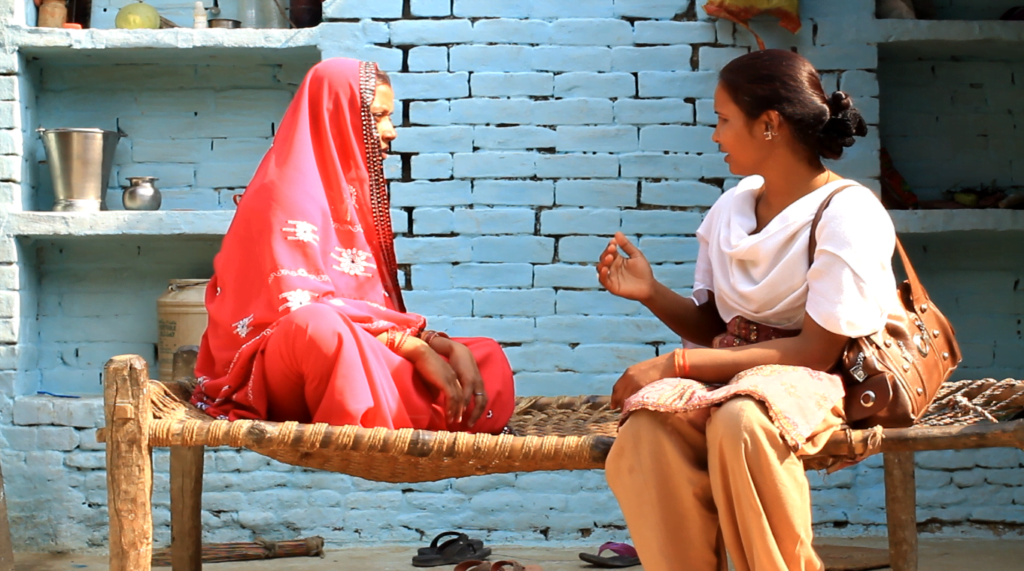
Looking at the knowledge hub and network programmes of DEF; Red Rickshaw Revolution, Digital Hunar award, mobile for good are many others, all of them have the overarching goal of creating a common platform for all kinds of digital interventions aimed at socio-economic development and empowerment of people and communities. The projects seek to cover interventions across different categories of digital media, including mobile phones and social media platforms across Asia.
Since the goal of DEF is to provide access to information to all, this goal is also fully aligned with global digital inclusion and bridging the digital divide. Bringing access to information dark areas through a rural ISP-based model, ‘Internet in a box’ by DEF where the box comes designed with built-in equipment and technology — including ethernet cables, relay cables, modems, connectors and user manuals — to deliver Internet connectivity at the last mile and, subsequently, promote adoption of the Internet for digital services related to information and entitlements, primarily in the area of livelihood, education and entertainment is another programme by DEF.
The notion of social entrepreneurship can mean different things to different organisations and individuals. DEF believes that it’s a process of making services available at village level not just to empower the rural community but by creating a sustainable livelihood option for the local level entrepreneurs. The idea is to create a social benefit that is not limited by personal gain.
By means of putting a completely localised user manual along with wireless equipment, radio, antenna, devices for measuring line of sight, modems, accessories and toolkit to enable the use of unlicensed spectrum packed in a physical box. The Internet in a Box can be used and installed by anyone and in any location with the help of a simple DIY manual.
Also read: Digital Footprint: We Must Equip Young Internet Users To Exercise Caution And Practice Cyber Hygiene
The objective of the project is to create rural entrepreneurs who not only sustain themselves as rural Internet service providers but also cater to the information and digital services needs of their community members. Many programmes and infrastructures were made efficiently like these for digital empowerment and many are successfully completed and some are still ongoing.
Digital Sarthak
Digital Sarthak is a national digital entrepreneurship and empowerment programme of DEF supported by USAID and DAI. It’s a training programme for women entrepreneurs and women-led community development organisations.
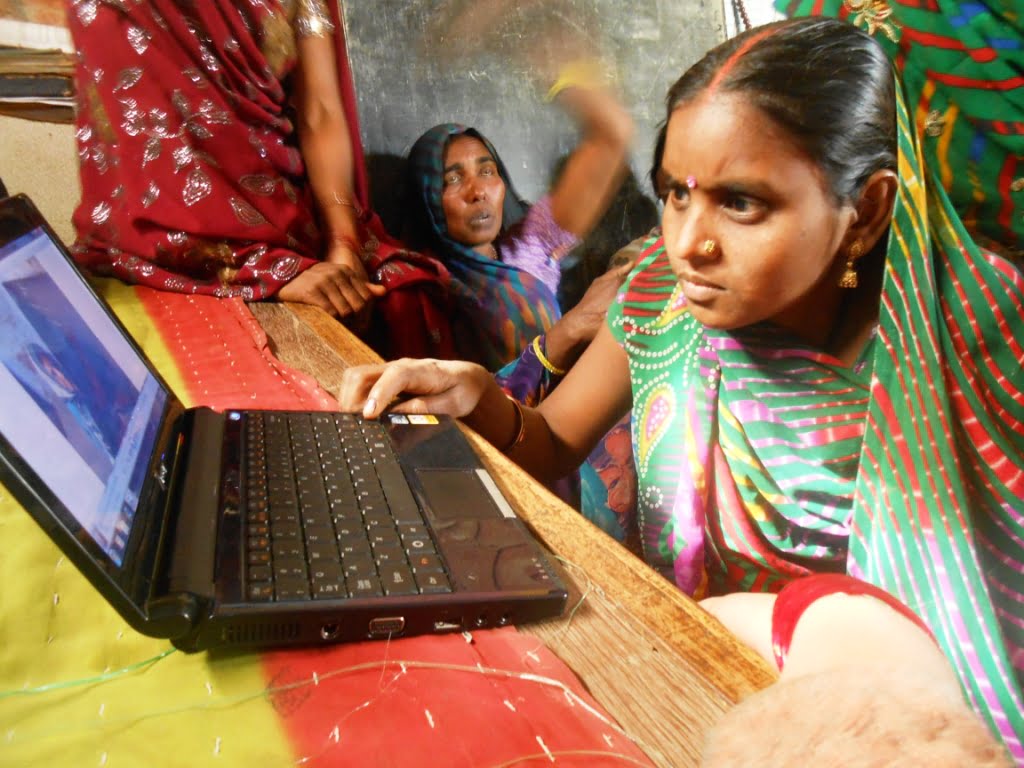
The main objective of the project is to increase the digital capacity of women entrepreneurs and community development organisations in marginalised and underserved regions in India by providing them with digital up-skilling support and strengthening their ability to engage in digital and ICT policy issues. The programme locations are mainly 13 states including Karnataka, Madhya Pradesh, Jharkhand and 23 districts.
“Under this programme, I was identified by Poonam as a trainee to receive digital literacy training. So far, I have been in six training sessions wherein I have learnt about calling, connecting WhatsApp, using YouTube, searching on Google, removing photos and videos, and how to talk to customers. I also helped my husband by taking this training, as he also did not have much knowledge about mobile phones. So, I taught him as well“, said Sonam, from Untwal, Alwar.
Puja Devi from Siladon, Jharkhand is running a tent house with Digital Sarthak training which has helped her develop digital skills. She uses Telegram, WhatsApp and Facebook to increase the visibility of her enterprise. Where earlier she would need to visit her customers regularly to understand their needs and requirements and take them forward, she now communicates through WhatsApp which helps her save a lot of time and energy and helps her focus on expanding the business.
The project’s motive is to strengthen and build their organisation and management capacities in social and economic activities, services, transactions, trade and commerce with basic and value-added digital skills and training towards better access, use and benefit from digital resources and opportunities.
SoochnaPreneur
In India, social entrepreneurship is growing day by day, alleviating myriad problems of society by giving them timely solutions. The key aim of this is to inculcate sustainable and dignified living in underprivileged and marginalised citizens.
The notion of social entrepreneurship can mean different things to different organisations and individuals. DEF believes that it’s a process of making services available at the village level not just to empower the rural community but by creating a sustainable livelihood option for the local level entrepreneurs. The idea is to create a social benefit that is not limited by personal gain.
SoochnaPreneur program is designed to serve various information services needs of citizen-consumers, especially at Village, Panchayat and Block levels in each of the 25 administrative development blocks in 6 backward districts in India
A pool of rural entrepreneurs would be formed under this scheme in order to enhance and democratise the environment of public plan information distribution, services, and ultimate entitlement advantages for targeted groups and beneficiaries.
Now, they work in 24 states and 135 districts, where the SoochnaPreneurs are reaching out to communities to overcome the digital divide, by providing digital services, digital literacy, and entitlement services to marginalised communities. Each and every beneficiary has a story of resilience, strength, hope, and inspiration.
Run by rural youths who may become change agents by becoming SoochnaPreneurs, while the true beneficiaries are rural families and people who are largely excluded from the information access and delivery networks of public initiatives. People who are denied genuine and timely public entitlements in crucial areas such as education, health, livelihood, employment, social security, and financial inclusion. The initiative aims to build a nexus of services on demand by rural consumers by utilising mobile devices equipped with connection and other resources.
Also read: Digital Media: Through The Lens Of An Intersectional Feminist
The main goal of the project is to strengthen the poor information ecosystem in rural communities in India, especially in the backward districts that have alienated a majority of India’s population from social and economic entitlement gains.
Education is integrally linked to women’s empowerment. Women are the agents of change. Education is viewed as a vital transformation agent responsible for national development. Proper and relevant education for girls is critical to securing our country’s future. Both the government and many non-governmental organisations are working hard to achieve this goal. And organisations and foundations like these are beacons of hope, promising a bright future for treating the world with the fruits of equality.
As the proverb goes, “You educate a man, you educate an individual. You educate a woman; you educate an entire nation”.
This article is part of the A-code partnership between FII and DEF. DEF is active on Facebook, Twitter, YouTube, LinkedIn, Instagram and you can check their website for more details.
